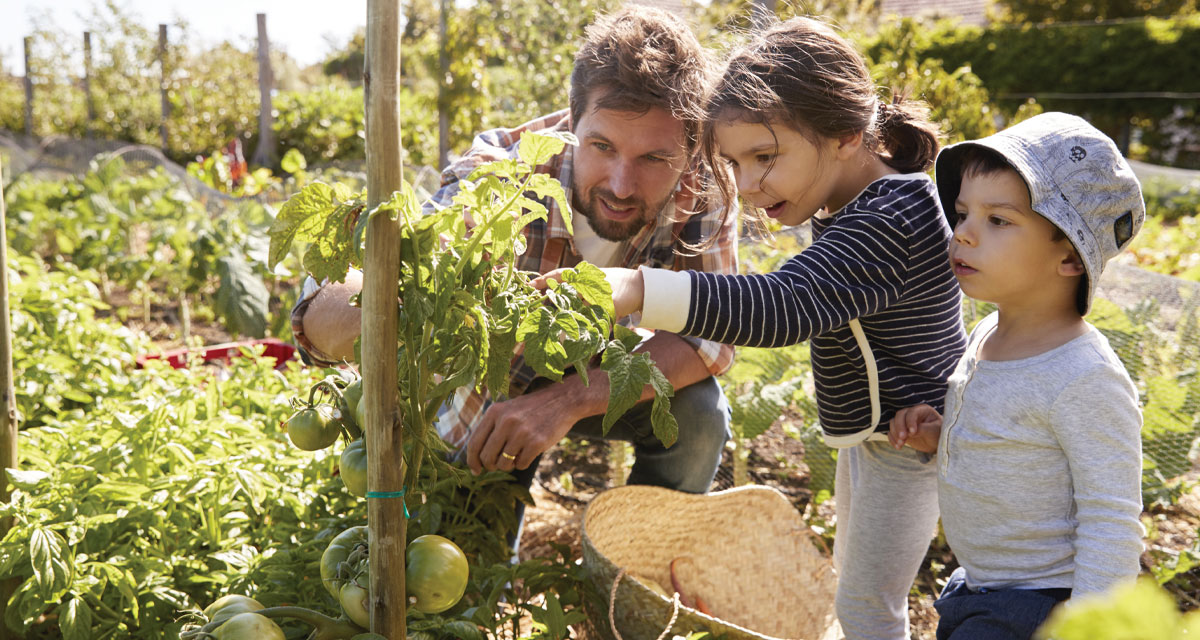Freedom without the support of sellers and companies that tie you to a monthly expense is liberating! While the image of rolling hills and acres of land concealing the best feature, the farmhouse, may seem unattainable, the definition begins with a first step! An effort to make a lifestyle change! Each transition away from dependency will decrease your expenses and help you strive towards a comfortable life of self-sufficiency!
Assessing Your Land
As you walk around your property, remember its size, whether minimal or abundant, has equal potential. Start by marking areas that receive six-plus hours of direct sunlight. You’ll need a viable place to start growing fruits, berries, herbs, and vegetables! If you do not have a natural water source, such as a brook or creek, consider a means to collect rainwater.
Tip: Online marketplaces offer everything you need to get started. You may find plastic barrels or caged 330-gallon tanks in varying sizes at a great price!
Generate a List
Record a list of favorite foods, including herbs, fruits, and berries! How can you make pasta or have on-hand a supply of peppermint tea? It’s time to think outside the box and experiment with plants. If everyone loves apples, consider planting two varieties of dwarf apple trees!
Tip: Take time to read the tag to ensure your tree selection requires a pollinator. Cherry trees and raspberries do not thrive in zone seven; it’s better to choose pears, plums, or blackberries!
Grow with Purpose
Every aspect of self-sufficiency leads to a goal! Growing sugar-snap peas could add 15-quart size bags to the freezer; and potatoes, if well-stored, support side dishes, stews, and soups. Start planning; then, planting in bulk. Create mounds in your garden to companion-plant onions and carrots, corn and vined fruits, such as watermelon or pumpkins. Herbs have multiple functions, from flavoring foods to medicinal health. You’ll be amazed at why you enjoy peppermint or sage!
Tip: Build a compost pile from three pallets and chicken wire, and watch your trash reduce by two-thirds! Add grass clippings and fall leaves, a gift from Mother Nature!
Tip: Reach out to your local Cooperative Extension Office to learn more about their free classes, from gardening and pruning to beekeeping and farming.
Animals for Protein or Meat
Zoning laws will determine whether you can raise a flock of bug-consuming, happy chickens or ducks for eggs and meat. Raising small farm animals has numerous benefits, including lessening the pesky insect populations, free weed-eating, boosting compost levels, and receiving highly enriched eggs.
Tip: Children may enjoy the process of incubating chicken or duck eggs to raise for profit!
Heating and Cooking
For modern-day people, heating and cooking appear to be two separate items; yet, fires are a heat source for warmth and meals. An economical solution is to add a wood stove, termed “wood cook stove,” to your home to reduce electricity expenses. The popularity of homeowners installing outdoor brick ovens only adds to an alternative off-grid cooking resource!
Tip: Need an alternative heat conductor? Try making charcoal briquettes or wood pellets! It’s always wise to learn old-fashioned methods that one day could become quite helpful.
Hand Crank Tools
In the modernized world, we rely heavily on pressing buttons or lifting levers to complete every imaginable chore. Think of all the small and large appliances that do not require electricity! The step towards electrical freedom requires reducing your power usage. Have you ever tasted coffee made from a French press or percolator? Delicious! Would you start using a clothesline, a hand-crank mixer, or a can opener? You have plenty of manual tools to choose from, including ones requiring hand and foot power!
Getting off the grid is a long-term concept that continuously evolves—the dream may be five to ten acres and a house in a low-taxed and low-populated county, or a small city garden plot for cooking uses. Keep planning and implementing changes to promote self-sufficient living; perhaps that includes planting berry bushes, fruit trees, or planning on implementing solar power tubes or panels. Each of us can consciously make an impact to be partially or entirely off the grid!























